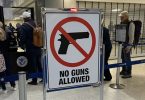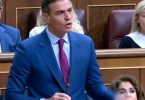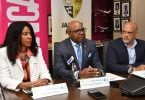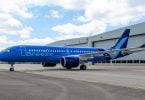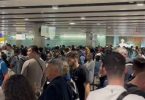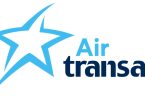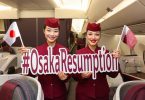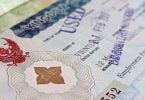It reviewed regional impacts of COVID on tourism-heavy economies and those communities disproportionately affected by the pandemic’s resulting economic downturn.
Listen to the hearing:
Witnesses had the opportunity to provide their insights surrounding these critical issues, as well as discuss solutions for supporting and revitalizing the travel and tourism industry moving forward.
Mboni:
- Mr. Steve Hill, CEO and President, Las Vegas Convention and Visitors Authority
- Mr. Jorge Perez, Regional Portfolio President, MGM Resorts International
- Ms. Carol Dover, President and CEO, Florida Restaurant and Lodging Association
- Ms. Tori Emerson Barnes, Executive Vice President, Public Affairs and Policy, U.S. Travel Association
The 63 year old chairwomen Jacklyn Sheryl Rosen is a computer programmer serving as the junior United States Senator from Nevada since 2019. A member of the Democratic Party, she was the U.S. Representative for Nevada’s 3rd congressional district from 2017 to 2019.
US Travel Association VP Tori Emerson Barnes made the following statement.
Chairwoman Rosen, Ranking Member Scott, Chairwoman Cantwell, Ranking MemberWicker, and members of the subcommittee, good afternoon.
Jacklyn Sheryl Rosen is an American politician and computer programmer serving as the junior United States Senator from Nevada since 2019. A member of the Democratic Party, she was the U.S. Representative for N
I’m Tori Emerson Barnes, executive vice president of public affairs and policy for the U.S. Travel Association. Thank you for inviting the travel industry to participate in this critically important hearing.
U.S. Travel is the only association that represents all sectors of the travel industry— airports, airlines, hotels, state and local tourism offices, cruise lines, car rental companies, theme parks, and attractions and many others. All of these sectors of travel are crucial to our broader industry’s economic revival and should be treated equitably as we develop strategies to restart and restore widespread travel.
Before the devastating COVID-19 pandemic, $1.1 trillion in traveler spending in the U.S. generated a $2.6 trillion total economic impact and supported 16.7 million jobs in 2019.1 Travel was the second largest industry export and largest service industry export, generating a trade surplus of $51 billion.
This all came to a halt at the onset of the public health crisis. As this subcommittee is well aware, travel and tourism is the hardest-hit industry in the economic fallout of the pandemic. And now we know what happens when the world stops moving: Economies and livelihoods are decimated. In 2020, travel spending in the U.S. plummeted 42%, costing the U.S. economy $500 billion in lost travel spending.2 Nevada, Florida and Washington suffered travel spending declines of more than 40%. Travel spending fell 26% in Mississippi.
These spending declines gutted the travel workforce: 5.6 million travel-supported jobs were lost, accounting for 65% of all jobs lost in the U.S.
Currently, the travel industry is expected to take five years to recover from this crisis; that is far too long to wait. While we expect domestic leisure travel to be the segment of our industry that recovers the fastest, a rebound is not inevitable. Low-to-middle income families have been hardest hit by the pandemic and research shows they are less likely to travel in the next year.
Business meetings, conventions, and events are still severely restricted in many states, and this sector—which also happens to be the largest revenue generator and job creator—is projected to take four years to recover. And, with our borders still closed to much of the world, international travel to the U.S. will take more than five years to return to pre-pandemic levels—and with the uncertainty around reopening, it could be even longer.
We must implement the right strategies now to restart widespread travel. U.S. Travel has identified four key priorities to restore travel demand, accelerate rehiring and shorten the timeline for recovery:
1. We must safely and quickly reopen international travel.
2. The CDC should approve clear guidance to safely restart professional meetings and events.
3. Congress must enact the Hospitality and Commerce Job Recovery Act to spur incremental demand and accelerate rehiring.
4. Congress should provide temporary emergency funding for Brand USA to welcomvisitors back to the U.S.
Specific policies can also be implemented to improve the industry’s long-term competitiveness and ensure we come back stronger and better than ever, such as:
1. Enacting the Visit America Act to elevate permanent leadership in federal
2. Investing in repairing and modernizing travel infrastructure.
Reopen international inbound travel



